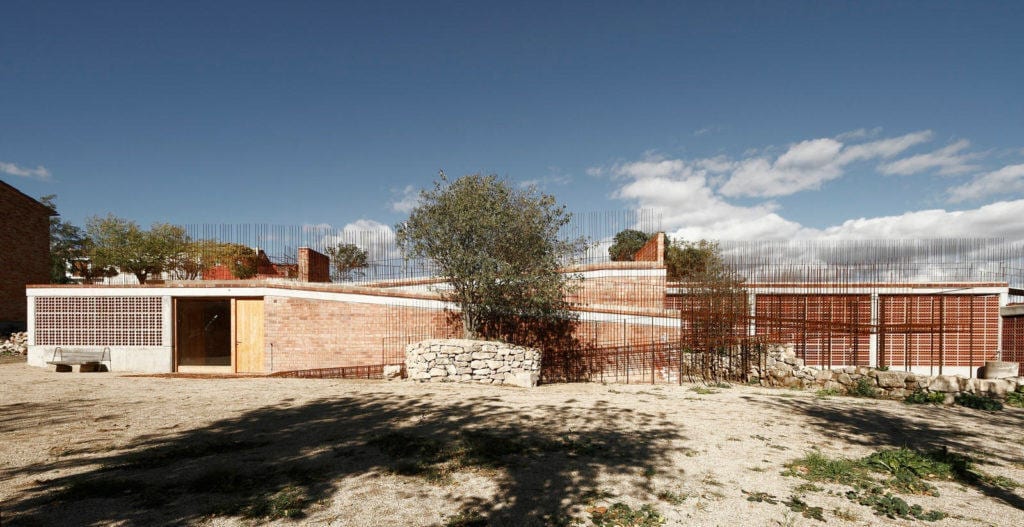During January of 2007, the construction works of one of the pipes of the water distribution mains in the Segarra-Garrigues system caused an unexpected appearance of archaeological ruins from an ancient construction, which dated from 4.800 years ago, in Seró (Artesa de Segre, Lleida). The most exceptional feature of this discovery was the megalithic nature of sandstone slabs and especially the accuracy of the geometrical decoration carved on them. These stones with soft relief were, in fact, fragments of ancient statues reused from a former sculptural monument.
Next to the bascule square of the village, in the terrains of two abandoned orchards, the new building is projected, a small cultural equipment with polyvalent uses and spaces. The construction, which is based on local materials, is the new topography to solve the one-floor-drop between the square and the orchards.
A succession of mild ramps with light and elastic limits made of corrugated steel suggest the transits and cover the different conditions of the projected public space: …a clay and humus platform between the square and the prepirinenc horizon, a cliff above the chamber of the steles from which we can localize the area of the discovery…, a corner space looking to west with sunlight in the winter and vegetal cover during the summer, some benches made of recycled stones from one of the walls of the orchards, porous pavings which offer thermal inertia to the roof and embrace the landscape adapting to the different seasons…, the shadows of two recovered warehouses… and the memory of the previous orchards with the spontaneous regrowth of chard.
In the inside, the space of the wine offers the product of the local cooperatives and at the same time functions as the village bar. The polyvalent room blends the daily uses, as a social centre with the introduction to the exhibition area where the discovery is documented and the pieces of the megalithic tomb are displayed…
…finally, we start the transit towards the millennial stones… a quadrangular spiral tour with an almost imperceptible slope… surrounded by perforated ceramic pieces that let in the dim light, the air, the smells of the countryside, the fog… light intensity starts going down, the ceramic paving disintegrates, and when we arrive to the chamber the overhead lights focus the sight on the etched surface of each of the stones… a lapse of time in a silence of precise contemplation, in an horizontal plane of clay powder which shows the footprint of each visitor… quietly and in reverse direction, we walk our way out with no possibility of crossing with others… gradually light and noise intensify, until the horizon of a wheat field comes to find us and takes us back to the common agricultural landscape of the region.

